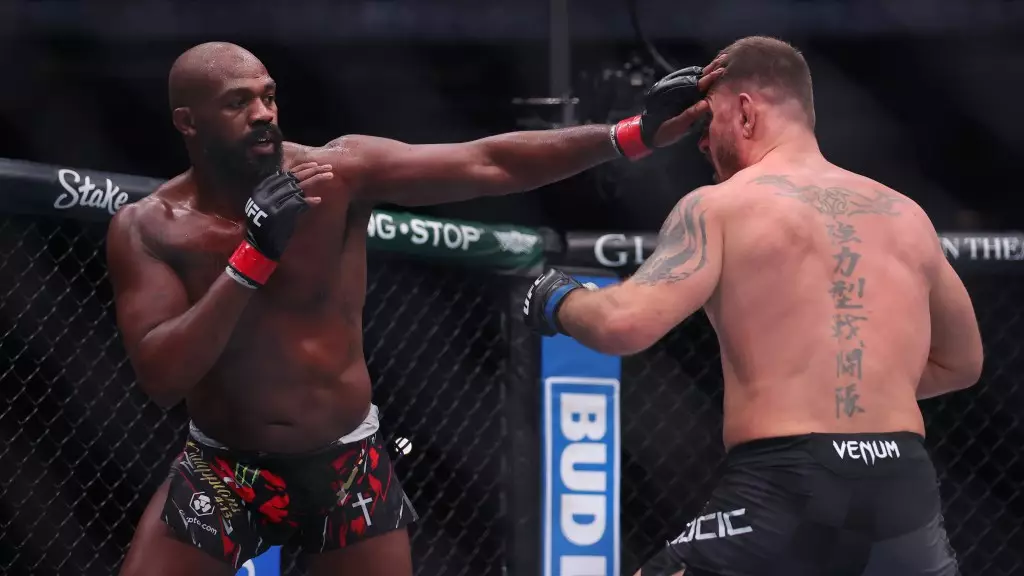In the realm of mixed martial arts (MMA), few names resonate as powerfully as Jon Jones. With a professional record boasting 27 wins, one loss (which many contest was more of a technicality), and one no contest, he has traversed the octagon with an almost unparalleled brilliance. Recently, following his triumphant title defense at UFC 309 against heavyweight contender Stipe Miocic, Jones found himself placed at No. 2 in the UFC’s pound-for-pound rankings. Contrasting views between Jones and UFC President Dana White highlight deeper conversations about legacy, ranking systems, and personal fulfillment in combat sports.
For Jones, the acknowledgment of being the second-best pound-for-pound fighter in the UFC at the age of 37 is a badge of honor. His self-reflection showcases a maturity tempered by years of both triumph and adversity. Jones took to social media, expressing contentment in his ranking and recognizing the achievement it reflects considering his return to the sport after a significant hiatus. His perspective underscores an important theme in competitive sports: the recognition and appreciation of one’s career at different life stages.
The UFC heavyweight title he successfully defended is not just a trophy; it represents a confluence of skill, resilience, and adaptability. After years of dominating the light heavyweight scene, Jones’ transition to heavyweight was not just a new chapter; it was a testament to his prowess as a fighter willing to challenge himself against larger, often more powerful opponents. His thoughts illustrate a mindset of gratitude rather than entitlement, a refreshing perspective in a sport often fraught with vanity and bravado.
On the other hand, Dana White, a stalwart advocate for his fighters yet hardened by the demands of the role, holds a different opinion. White believes Jones should sit comfortably at the top of the pound-for-pound list, suggesting that the achievements and stature of Jones warrant a more exalted position. This divergence in viewpoint reveals a blend of marketing dynamics and competitiveness that exists within the hierarchy of the UFC. While White’s role necessitates championing stars like Jones, it also reflects a deeper business-driven motivation to spotlight figures who can drive engagement and intrigue in the MMA landscape.
The rankings themselves are curated by an independent panel that evaluates fighters based on multiple criteria, yet the very essence of “pound-for-pound” can often feel subjective. How do we measure greatness? Is it solely by titles accumulated or is it the manner in which battles are fought and adversaries are conquered?
Jon Jones’ relationship with rankings evokes broader questions about how legacies are defined in sports. At the heart of this discussion lies the recognition that rankings are fluid, shaped by performance, perception, and a warrior’s tenacity. For his supporters, Jones epitomizes greatness despite the noise surrounding his competition with others, like the current UFC lightweight champion Islam Makhachev, who too holds significance in the ongoing discourse of “Who is the best?”
In a sport where moments and reputations can pivot on a dime, Jones remains a figure of interest in his fight for recognition and respect. Whether he remains at No. 2 or ascends to No. 1, his journey is a rich tapestry worth following, defined not just by rankings, but by an evolving narrative of endurance, skill, and the spirit of competition.

